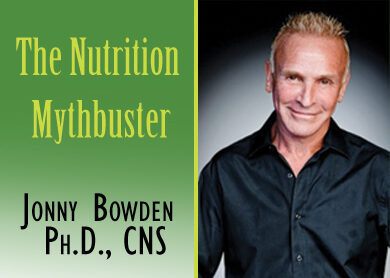Not a week goes by that I don’t get questions about supplements. They come from Facebook, they come from readers of my books, they come from my website, from members of the media and from audience members at my seminars. So this month, I’ve decided to compile the questions I get most frequently, and give you my answers to them. Hope you enjoy!
Q. In America, where it is perceived that many people have access to nutritious ingredients, are dietary supplements really necessary?
A. They are not necessary, but neither is indoor plumbing. The question is, why would you want to do without either one?
Q. What do you view as the main benefit(s) of taking supplements?
A. Supplements are nothing more than a high-tech delivery system for nutrients that are essential for our health and well-being. In addition, supplements are the only way to get meaningful amounts of certain compounds that are very difficult to get from food. Examples: alpha lipoic acid, curcumin, resveratrol, coenzyme Q10 or citrus bergamot. And that’s just a partial list!
Q. Are there any health risks or problems associated with taking supplements?
A.There are potential risks or problems associated with virtually every substance on earth—including oxygen and water. But overall, the safety profile of vitamins is exemplary. According to data from the American Association of Poison Control Centers, there have been an average of less than one death per year from vitamin fatalities over the past two and a half decades, and in 19 of those 27 years there was not a single death (1).
Compare that to the 52 death per year from aspirin alone (2), or the 7,600 deaths per year for the category of over-the-counter NSAIDS (non-steroidal anti-inflammatory drugs (3).
Q. Who should consider taking a supplement?
A. Supplement regimens can be designed to support any health condition or concern. There are wonderful formulas for the brain, there are nutrients you can take to support heart health, and anyone with hepatitis will find many supplements that support the liver. And ordinary healthy people can benefit from supplements as well—almost no one gets enough magnesium or vitamin D, for example, and I’ve never seen anyone—the population of Greenland not withstanding—who couldn’t benefit from some extra omega-3s.
Q. Is a multivitamin a good supplement choice for most people? Why or why not?
A. Yes. The problem is that most commercial one-a-day type formulas are really cheap, with cheap ingredients and minimal doses. I guess they’re better than nothing, but not by much. A high-quality multiple is a good idea even if you’re taking lots of separate supplements, for no other reason than it covers the basics that people often don’t take separately—like selenium and folic acid, for example.
Q. Do you believe one delivery method of supplements is better than another (pill vs powder, for example)?
A. Nope, not necessarily. Different formulations suit different people—quality matters way more than form of delivery.
Q. What should be considered before starting a supplement regimen?
A.What you’re trying to accomplish. If it’s basic insurance, and you’re basically healthy, you probably don’t need dozens of supplements. If your liver or heart is compromised in some way, or if you’re older, or if you’re under a lot of stress or if you’re pregnant—it’s a different story and you should work with a competent, nutritionally educated health provider to come up with an individualized supplement plan that works for you.
Q. In your opinion, is it OK to take supplements on and off (needed one day, but not another)?
A. I don’t think I’d formalize it like that—after all, the body needs fuel every day and it needs nutrients from that fuel—but I don’t think it’s a big deal if you miss a day here and there—I certainly do! WF
References
1. http://www.doctoryourself.com/vitsafety.html
2. http://www.fda.gov/ohrms/dockets/ac/02/briefing/3882B2_02_McNeil-NSAID.htm#_Toc18761780
3. http://www.drugwarfacts.org/causes.pdf
 Jonny Bowden, “the Nutrition Myth Buster”™ is a board-certified nutritionist and the best-selling author of The Great Cholesterol Myth and 13 other books. Visit him at www.jonnybowden.com.
Jonny Bowden, “the Nutrition Myth Buster”™ is a board-certified nutritionist and the best-selling author of The Great Cholesterol Myth and 13 other books. Visit him at www.jonnybowden.com.
Posted on WholeFoods Magazine Online, 8/13/15
NOTE: The statements presented in this column should not be considered medical advice or a way to diagnose or treat any disease or illness. Dietary supplements do not treat, cure or prevent any disease. Always seek the advice of a medical professional before altering your daily dietary regimen. The opinions presented here are those of the writer. WholeFoods Magazine does not endorse any specific company, brand or product.










